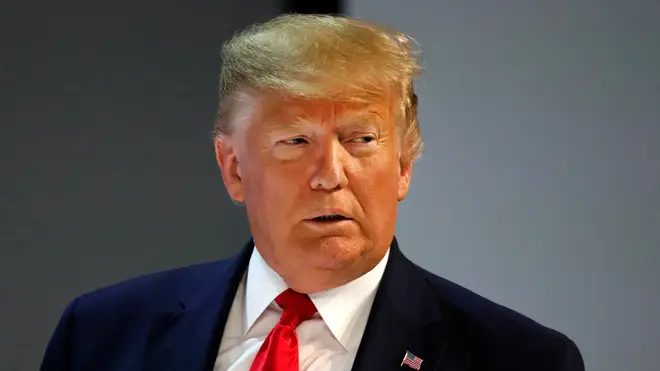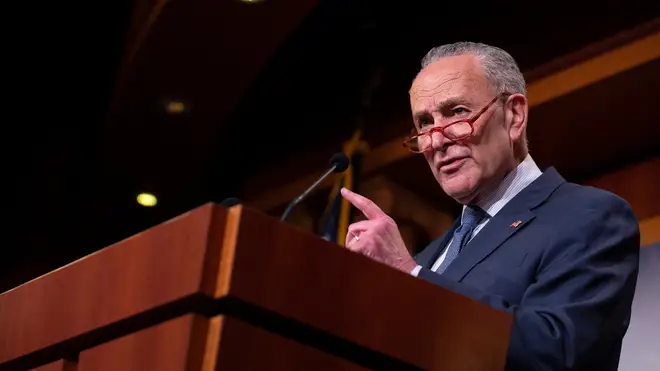
Shelagh Fogarty 1pm - 4pm
21 January 2020, 21:45

President Donald Trump’s impeachment trial has opened in the Senate to much fanfare, with both sides criticising the process.
Chief Justice John Roberts gavelled in the session on Tuesday, with sittings set to take place six days a week until the trial is over.
Democrats in the US house of representatives impeached the president last month on two charges: abuse of power by withholding US military aid to Ukraine as he pressed that country to investigate Mr Trump's Democratic rival Joe Biden, and obstruction of congress by refusing to comply with their investigation.
But what will happen during the trial? Here’s our guide to Trump’s impeachment:
The senate opened with a debate on the structure and rules of the proceedings.
Senate majority leader Mitch McConnell had proposed a condensed, two-day calendar for opening arguments on the articles of impeachment passed by the US house on December 18.
But he abruptly changed his proposal to add a third day for opening arguments after protests from senators.
House evidence will also now be included in the record.

"At all times," according to senate rules, a majority of senators present can vote to close the proceedings and debate in private.
That would mean the TV cameras will be shut off and everyone who is not a member of the senate will be kicked out of the chamber until the senators choose to reopen it.
Senators did just that at various points during the Clinton trial.
Mr McConnell then argued that members of the chamber listen to each other better in private.
After the opening arguments - with a maximum of 24 hours per side - senators will be allowed up to 16 hours for questions to the prosecution and defence, followed by four hours of debate.
Only then will there be votes on calling other witnesses.

Leading the case for the house is intelligence committee chairman Adam Schiff of California, and judiciary committee chairman Jerrold Nadler of New York.
Five other Democrats round out the prosecution team, a group US house speaker Nancy Pelosi said she chose in part for their experience with the law.
Zoe Lofgren of California has worked on three impeachment inquiries, starting with the one that helped persuade former president Richard Nixon to resign.
Val Demings of Florida is not a lawyer, but she is a former police chief, and as member of both committees is deeply familiar with the case against Mr Trump.
Hakeem Jeffries is a lawyer and chairman of the House Democratic Caucus, so he is close to Ms Pelosi's ranks.
Ms Pelosi also chose two freshmen who helped flip the house from Republican control in 2018. Sylvia Garcia of Texas is a former judge.
And Jason Crow of Colorado is a retired Army Ranger who was one of the seven new members with national security backgrounds to call for Mr Trump's impeachment over his conduct with Ukraine.
Donald Trump has cast some big personalities in his defence team.
White House counsel Pat Cipollone and personal lawyer Jay Sekulow are expected to lead the argument that Mr Trump committed no crimes, that abuse of power is not an impeachable offence and that the president is a victim of a political "witch hunt" by Democrats.
Bringing experience both in constitutional law and the politics of impeachment, he has added retired law professor Alan Dershowitz and Ken Starr, the independent counsel who investigated Mr Clinton.
The team also will include Pam Bondi, the former Florida attorney general.
100: The total number of senators.
53: The Republican majority.
51: The number of senators who must agree on almost anything to make it happen during an impeachment trial.
Four: The number of Republican senators who must join the Democrats to get to the magical 51 level.
Two thirds: The proportion of senators required to convict and remove a president from office.
So, 67 members of the Senate would have to vote to convict, if every senator is voting.